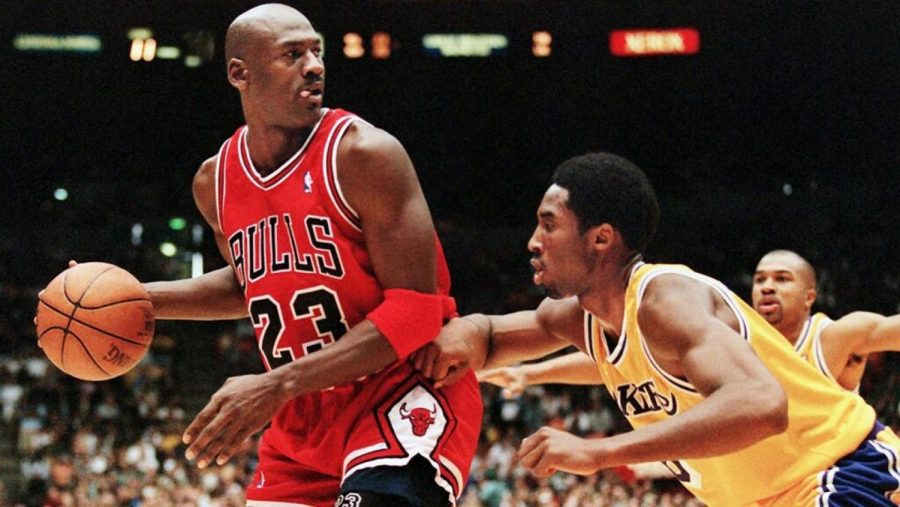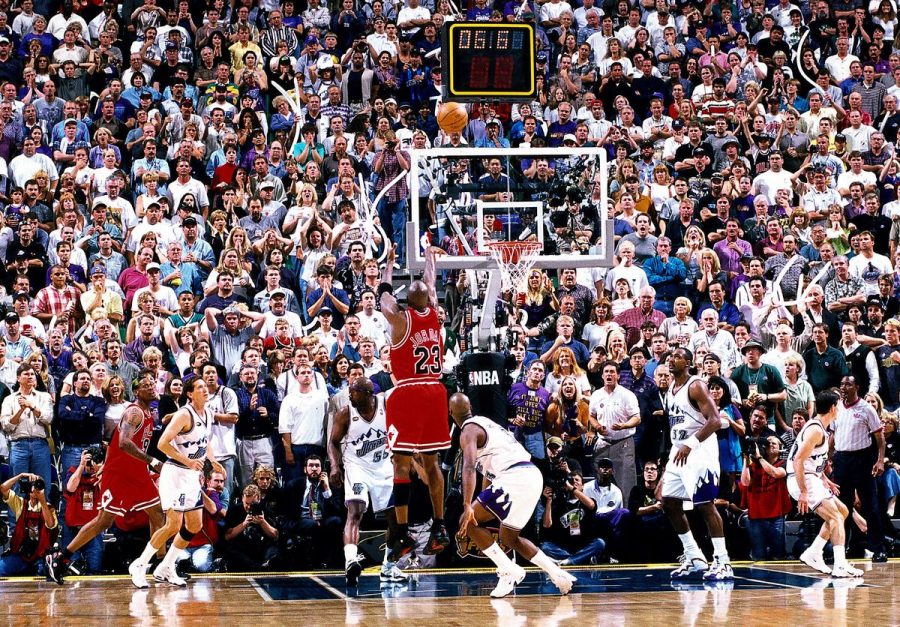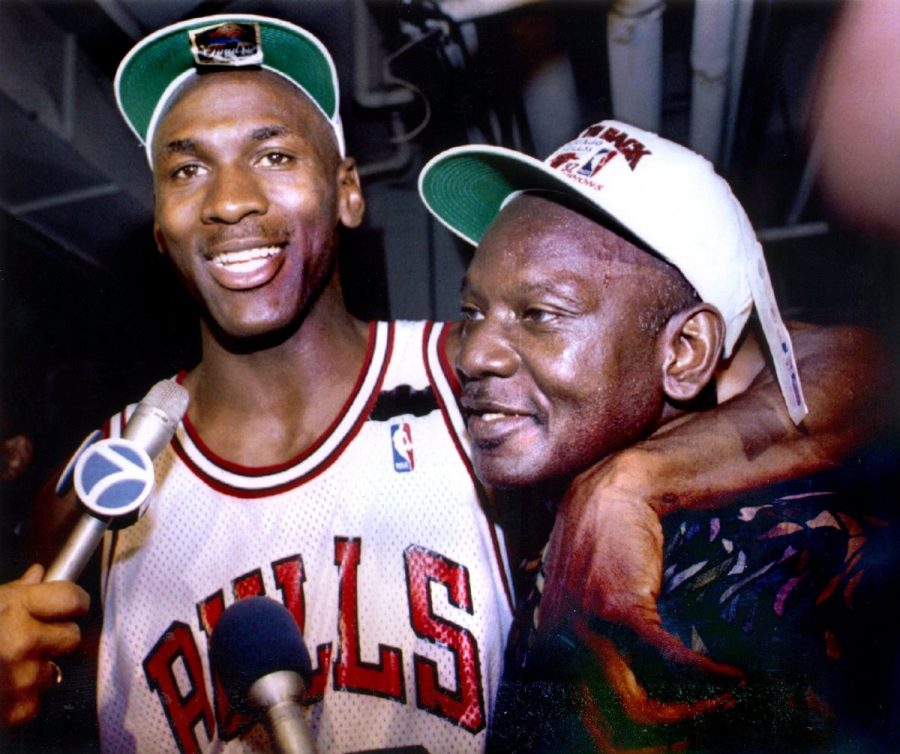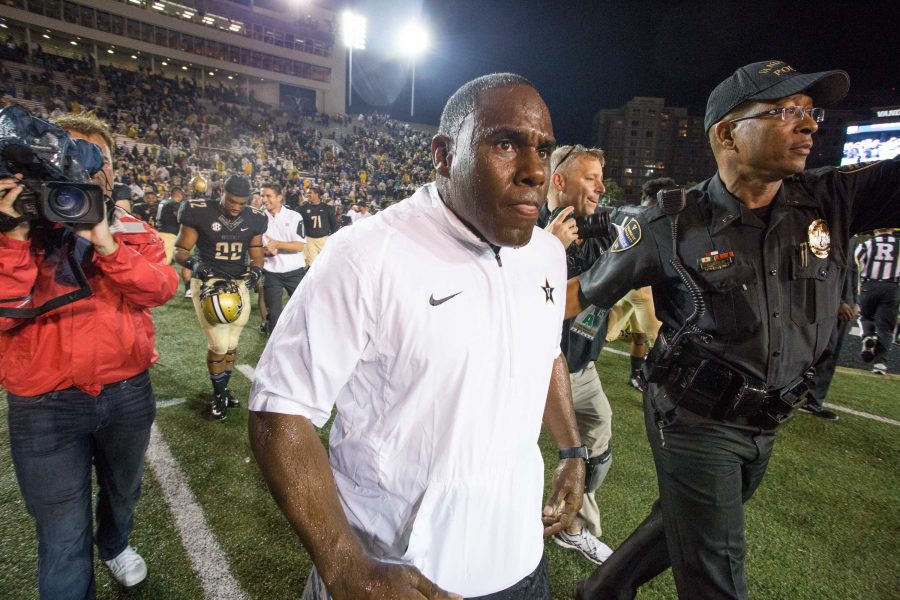In the wake of no live professional sports, ESPN’s ten-part documentary, “The Last Dance,” has provided desperate fans with an escape from the ever-changing realities of life during the COVID-19 pandemic.
With never before seen footage and a hint of nostalgia, the documentary sheds light on the Chicago Bulls dramatic run to their sixth NBA Championship in 1998, Michael Jordan’s last year with the team.
Episodes five and six aired Sunday night on ESPN, opening with an emotional homage to the late Kobe Bryant and closing with the end of the 1998 regular season, building anticipation for the Jordan-led Bulls’ final playoff run.
A Tribute to One of the Greats
In a fitting tribute to one of the NBA’s most respected players, Episode Five began with the 1998 NBA All-Star game, where Los Angeles Lakers legend Kobe Bryant made history. A 19-year-old Bryant became the youngest player to appear in the All-Star game while his idol, Michael Jordan, prepared for what was expected to be his last.
Of course, everyone idolized Jordan’s play style; evidently, no one more than Bryant. While it may not have always stood out over the course of his career, “The Last Dance” provided a unique glimpse into a different aspect of Kobe Bryant’s game: his emulation of Jordan’s mental approach on the basketball court.
The documentary showed clips of Bryant guarding Jordan in that All-Star game, yelling to his teammates, “I got Mike.” Bryant’s killer instinct, his ability to will his team to wins and his desire to always take on the best were traits Jordan helped instill in him.
It was emotional, yet serene, to watch Kobe Bryant talk about his mentor. Bryant spoke of Jordan as if he was still a kid, imitating him in the backyard. But he also highlighted their deep relationship, a relationship that ran strong both on and off the court.
“He said if you ever need anything, give me a call. He is like my big brother.” Bryant said of Jordan. “What you get from me is from him, I don’t get five championships [in Los Angeles] without him.”
Just seven months after Bryant’s interviews for “The Last Dance,” he and eight others tragically passed away in a helicopter accident. Millions around the world continue to mourn his passing, but it was his self-described “big brother,” Michael Jordan, who was there to remind the basketball world just how special Kobe Bryant was as both a player and a friend.
“Kobe was my dear friend. He was like a little brother [to me],” Jordan said at Bryant’s memorial service February 24. “I promise you, from this day forward, I will live with the memories of knowing that I had a little brother who I tried to help in any way I could.”
The ball-hogging kid that Jordan dubbed “the little laker boy” before the All-Star game in 1998, became his little brother, and Jordan memorialized him by celebrating his achievements and tying together the basketball community that suffered the loss of a legend.
“The Last Dance” did just the same. It focused on Bryant’s eagerness and his desire to be the best while offering a new perspective into his relationship with Michael Jordan and celebrating him.
Jerry Krause: An Endless Well of Motivation
Throughout the documentary, the animosity between Bulls General Manager Jerry Krause and his players is stunning. Because the team was winning championship after championship, it is somewhat mind-boggling that its two star players, Michael Jordan and Scottie Pippen, felt such discontent towards their GM.
But in most cases, instead of turning this discontent into media headlines and organizational dysfunction, Jordan and Pippen used it as fuel to dominate their opponents.
In Episode Five, the pair explained Krause’s infatuation with Croatian sensation, Toni Kukoč. After drafting Kukoč in the second round of the 1990 NBA Draft, Krause allegedly dubbed him “the future of the Bulls.”
This understandably rubbed the fiery duo the wrong way, and they proceeded to take out their frustration with Krause on Kukoč, who they did not know personally during the 1992 Olympics.
In a similar demonstration, Episode Six featured the Bulls battle with the Phoenix Suns in the 1993 NBA Finals, and Jordan explained Krause’s love for yet another player not on his own championship team: Phoenix Suns guard Dan Majerle.
Majerle was a versatile, accomplished defender who Krause seemed to believe would put up a good fight against Michael Jordan. That did not exactly happen. Jordan averaged 41 points in the series and led the Bulls to their third straight NBA Championship.
Krause was a constant motivator for Jordan and Pippen with his consistent interest outside of the Bulls organization. They both strived to make Krause look dumb whenever they possibly could. They completely invalidated many of Krause’s opinions on players by simply beating them on the court.
Jordan continued to show that anger and doubt only made him more dangerous. Whether it was in the Dream Team practice against Magic Johnson or the NBA Finals in 1993, Jordan took his frustration out on his opponents. Maybe Krause knew what he was doing all along.
Jordan’s ability to channel even the smallest of motivations into wins was a consistent theme throughout his career. He had an unbelievable drive to be great that did not need to be charged by losing. Being slighted by Charles Barkley for the 1993 MVP or hearing Krause’s comments about other players could have turned into media drama, but instead, Jordan turned them into championships.
The Ongoing Question: Lebron James or Michael Jordan?
“The Last Dance” has exposed the greatness of Michael Jordan for many fans that were not fortunate enough to experience it firsthand. It will be interesting to see how this exposure affects the apparent generational gap in the greatest-of-all-time (GOAT) debate. Younger generations of NBA fans have witnessed Los Angeles star Lebron James’ dominance and many hold him as the GOAT.
There are many factors in this debate including statistics, longevity, raw talent and team success. And there are plenty of YouTube highlights and box scores on the internet that can support either James or Jordan on these criteria.
But this documentary has illustrated a different side to the debate. Its deep dive into the Bulls’ incredible stories, Jordan’s unique persona and the unbelievable scale of his stardom have both reminded and introduced fans to other crucial pieces in a debate between two players strikingly similar in ability.
For example, many tout Jordan’s supporting cast as far superior to James’. This may be true in hindsight, but what the documentary has shown is that Jordan had an unbelievable ability to elevate his teammates’ play.
The documentary has illustrated Jordan’s intensity; his willingness to dig into his teammates in practice, to take the clipboard in the huddle and to embrace outlandish teammates like Dennis Rodman with his need to “let loose” before the spring sprint in 1998.
James and Jordan have comparable statistics and accomplishments, making it critical to look at their individual effect on their teammates as a factor in the debate.
Jordan’s leadership style may have rubbed some the wrong way, as documented in Sam Smith’s book, “The Jordan Rules,” from Episode Six, but there is no doubt that it produced great results. He never asked his teammates to be something they were not, and he took pressure off of them by pushing them to focus on what each of them did best. And that may be the true essence of the Bulls success.
Next Sunday, Episodes Seven and Eight will air at 9 pm EST on ESPN, beginning with the first series in the Bulls 1998 Playoff run against the New Jersey Nets.




















